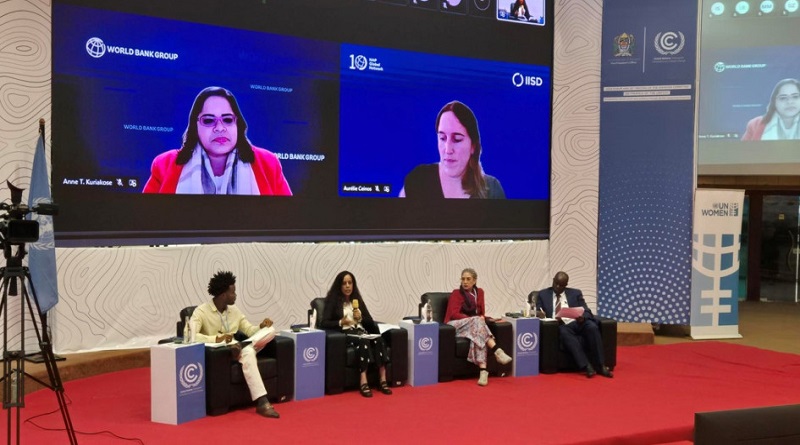Stakeholders canvass gender-responsive finance for climate action, resilience
Picture caption: Participants at the Standing Committee on Finance Forum 2024 held in Tanzania. Credit: UN Climate Change
The Standing Committee on Finance (SCF) Forum has canvassed for gender-responsive climate finance, recognizing that the climate emergency and the solutions impacts people of all genders in different ways.
This year’s SCF Forum, hosted by the Tanzanian government and in partnership with UN Women, has for the first time centered its discussions on gender-responsive climate finance.
The forum, held alongside the 35th SCF meeting, provided a critical platform for a diverse range of stakeholders—governments, climate funds, financial institutions, civil society, women’s organizations, think tanks, and the private sector—to strengthen coordination in mobilizing and delivering climate finance.
Gender-responsive financing initiatives, which take into account the diverse needs, roles and responsibilities of people of all genders, have proven to enable more effective and cohesive climate action benefiting society as a whole.
“It is gratifying to note that this year’s SCF Forum has such a crucial theme,” said Philip Mpango, Vice-President of the Republic of Tanzania, at the forum’s opening. “Gender-responsive finance cannot be achieved without gender equality and participatory decision-making processes.”
Acknowledging the key role of finance in enabling implementation, the discussion emphasized the importance of ensuring adequate funding for gender-responsive climate action in the new round of national climate plans, also called Nationally Determined Contributions (NDC 3.0) and National Adaptation Plans, NAPs.
“Gender-responsive finance is essential – it is not just the right thing to do, it is the smart thing to do,” said Noura Hamladji, UN Climate Change Deputy Executive Secretary. “This was clearly shown in a recent report by UN Climate Change on the doubling of adaptation finance, which found that gender-responsive approaches increase the overall effectiveness of adaptation finance.”
Throughout the two days of discussions, the Forum delved into the different economic, political and social tensions caused by climate impacts that can deepen and exacerbate existing inequalities. Participants explored the current state of gender-responsive financial flows, identifying opportunities to integrate gender considerations into climate finance frameworks, sharing best practices and lessons learned in financing gender-responsive climate action and resilience initiatives. They highlighted how to mobilize and scale up gender-responsive financing through different funding sources, channels and instruments.
Participants were reminded that in the past decade several UNFCCC decisions have recognized the necessity of gender-responsive financing, including mandates for the operating entities of the financial mechanism to consider further integrating gender considerations into their work, among other things by considering the implementation of the enhanced Lima work programme on gender and its gender action plan.
The urgency of action was sounded by Jemimah Njuki, Chief of the Economic Empowerment Section at UN Women, who said that the climate emergency is undermining women’s rights, resources, and resilience. “UN Women research shows that, by 2050, climate change could push 158 million women and girls into poverty, with over 250 million facing food insecurity under a worst-case scenario,” she said.
Concluding the meeting, participants called for a continued focus on gender in future SCF forums, with the next forum set to focus on financing for food systems and agriculture—a sector in which gender disparities are often pronounced and where gender inequality plays a significant role in determining women’s adaptive capacity to climate change.
This year is key for enhancing climate finance, as negotiations step up on agreeing the New Collective Quantified Goal on climate finance.
At the COP29 UN Climate Change Conference in Baku, Azerbaijan, the focus will turn to how to unlock the significant financial resources needed for achieving the goals of the Paris Agreement. This presents a prime opportunity to ensure that gender-responsive finance is firmly embedded in climate strategies, thereby making climate action equitable and inclusive climate action.
The outcomes from this year’s SCF forum will be presented at COP29 as inputs for consideration by Parties.




